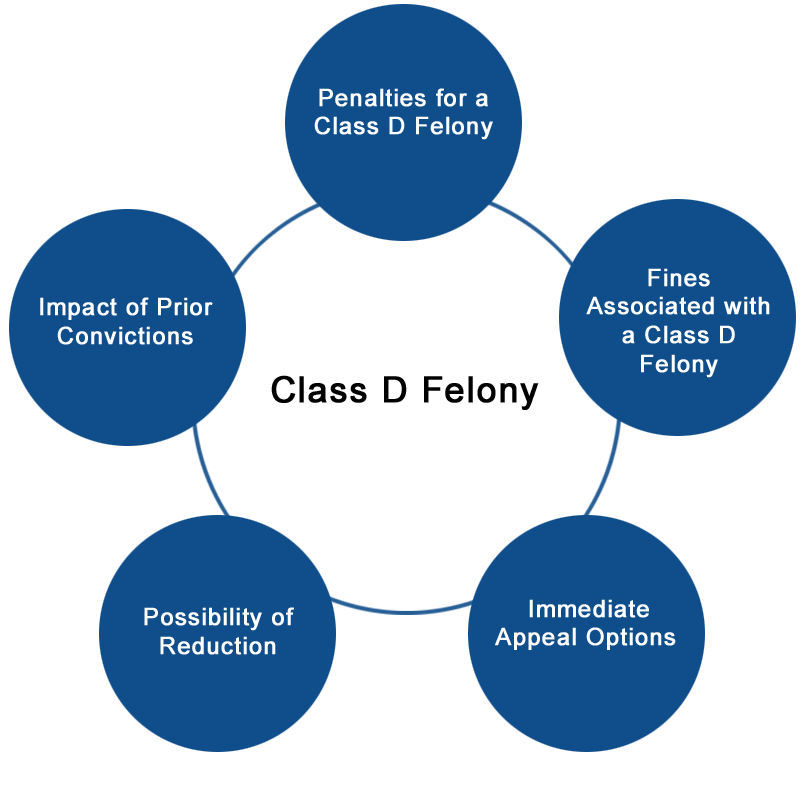Class D Felony in Wisconsin
Being convicted of felony charges can change your life. If you’re facing Class D felony charges, you’re probably worried about your trial, your outcome, and your future. The attorneys at Tracey Wood & Associates are here to help you regain hope for your case by empowering you with knowledge. Charges don’t equal convictions.
 What Is the Difference Between a Felony and a Misdemeanor?
What Is the Difference Between a Felony and a Misdemeanor?
Wisconsin defines felonies and misdemeanors by how long state statute stipulates the prison sentence should be and the suggested fines. Crimes that carry a sentence of one year or more are considered felonies. Crimes that carry a sentence of less than one year are misdemeanors. Both have associated fines.
What Are the Penalties for a Class D Felony?
The penalties for a Class D felony include up to 25 years in prison.
What Are the Fines for a Class D Felony?
Class D felonies carry fines up to $100,000.
What Are Some Consequences of Having a Criminal Record?
Beyond a prison sentence and high fines, having a felony on your record impacts many areas of your life. First, if you are charged with another crime in the future, the punishments will be more severe. You could lose your job, and potential employers will see a crime on your record when they run a background check. You could lose child visitation or custody.
Can You Immediately Appeal a Class D Felony?
Yes. To appeal your Class D felony, you must file a “notice of intent to seek post-conviction relief” within 20 days of your sentencing. The next step depends on the kind of appeal you file. You could return to trial court to introduce new arguments regarding the process, or, if you’re appealing based on a violation of your constitutional rights, you could go to the Court of Appeals.
Can a Class D Felony Be Reduced to a Different Class?
Yes. There are two ways we can work to have your charges reduced. First, we can negotiate a lesser sentence with the opposing counsel prior to trial. Then, the defense and the state must agree to the lesser sentence. Second, you could be convicted of a “lesser included offense” by the jury where they decide to convict you on reduced charges.
What Happens to Repeat Offenders if They’re Charged with a Class D Felony?
Prior convictions will likely mean a more punitive punishment if you’re charged with a subsequent Class D felony.
What Are the Civil Liberties That Are Removed from Somebody That Has a Class D Felony?
You will lose your right to vote until you complete your sentence including any probation. You will also lose your right to possess firearms.
Are There Ways to Get Early Parole with a Class D Felony?
It depends on the unique circumstances of your case.
Will a Class D Felony Conviction Cause Someone to Be Removed or Deported from the U.S.?
Felony convictions may result in deportation, but it depends on a few different factors: your visa, how long you’ve been in the country, your immigration status, and the type of crime for which you were convicted.
Domestic violence charges, drug charges, aggravated felonies, controlled substances charges, and crimes of moral turpitude (meaning crimes that defy mutually agreed-upon moral standards) are all more likely to be grounds for deportation.
Have Hope
Having hope for your case is the first step in regaining your power. At Tracey Wood & Associates, we want all our clients to have hope because they know we won’t stop fighting for them. We’re here to listen to your story, investigate your case, and develop a winning defense strategy.
Fight back now by contacting us to schedule a free, no-obligation case review online.
Call (608) 490-5779 or Schedule a Free Case Evaluation Online

